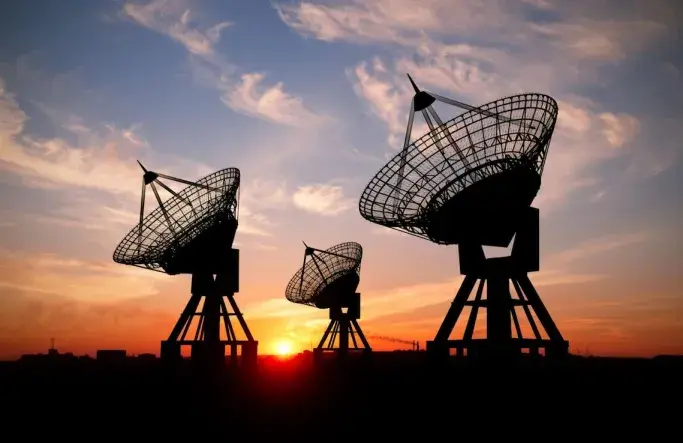

You’ve probably spotted satellites without even realizing it as they’ve become a common sight above us. Satellites improve many aspects of modern life. They enable GPS navigation, forecast weather, track storms, monitor crops, improve communication, and connect people to the internet. But who invented the first satellite, and how has the technology evolved since then?
Who Invented the First Satellite?
On October 4, 1957, the Soviet Union kicked off the space race with the launch of Sputnik 1, the first artificial satellite. Before Sputnik, the term satellite had referred exclusively to naturally occurring space objects that orbited planets. Chief designer Sergei Korolev led the team that converted what was at the time theoretical rocket science into the world’s first artificial satellite.
Sputnik 1’s design was incredibly simple compared to its modern descendants. The beachball-sized satellite had four antennas that broadcast radio pulses back to earth for three weeks before the onboard batteries died. Sputnik 1 orbited the Earth for four months before burning up in the atmosphere on January 4, 1958. As for the name, Sputnik is simply Russian for satellite.
A Timeline of Satellite Advancement
- 1957: The Soviet Union launches Sputnik 1, the first artificial satellite to orbit the Earth.
- 1960: NASA launches Tiros-1, the first successful weather satellite, which detected and tracked hurricanes.
- 1962: Telstar-1 transmits the first live transatlantic telecast.
- 1972: The Earth Resources Technology Satellite was launched, beginning the longest-running programme of satellite imagery of the Earth. Later renamed Landsat, the satellite captures millions of images used to evaluate natural and human changes to the Earth.
- 1979: The European Space Agency (ESA) launches Ariane-1, which puts two telecommunications satellites into orbit.
- 1990: The Hubble Space Telescope is carried into orbit by the Space Shuttle.
- 1994: The first global positioning system satellite constellation goes live.
- 1996: Hughes Network Systems launches DirecPC, the world’s first satellite internet service for consumers and small businesses.
- 2012: Hughes launches JUPITER™ 1, the world’s highest-capacity broadband satellite at launch
- 2012: The UCS (Union of Concerned Scientists) satellites database lists 1016 active satellites in orbit.
- 2023: Hughes launches the JUPITER 3, increasing the data capacity of the JUPITER fleet to 1 Tbps.
Find An Internet Plan That Works For You!
Satellite Benefits/Uses
Communication
Satellites enable real-time voice and data transfer across the globe, supporting phone calls and making satellite internet possible.
Remote Access
Telecommunication satellites, such as the JUPITER fleet, provide rural internet services to remote communities, bridging the digital divide and opening up educational and economic opportunities to people who live in locations underserved by terrestrial internet providers.
Navigation
Navigation services like GPS depend on satellites’ ability to provide precise information on location and time.
Financial Transactions
Satellites play a crucial role in banking and financial services, allowing for accurate, timely, and secure international transactions.
Weather Forecasting
Information from weather and climate satellites accurately forecasts weather patterns, predict and track hurricanes, and monitor changes to global temperature, sea levels, and the ozone layer.
Disaster Management
Satellites improve disaster response strategies by monitoring floods, wildfires, and other natural disasters.
Scientific Research
Satellites provide a platform for conducting experiments and collecting scientific data in space and on Earth, including mapping the universe and studying solar flares.
National Security Military Operations
The military uses satellites for secure communications, reconnaissance, and strategic planning.
Why Choose Satellite Internet?
Home satellite internet plans offer several significant benefits, especially for rural households:
- Available almost anywhere with a clear view of the sky.
- Continuous innovations in speed and delivery.
- Easily installed on homes and businesses
- Installed by professional technicians.
- Cost-efficient.
At Hughesnet, we pride ourselves on our commitment to constant innovation and continuous improvement. It’s this commitment that makes us a leader in satellite internet services. Learn more about our satellite internet service, and discover how we can help you stay connected, no matter where you prefer to live and work.



